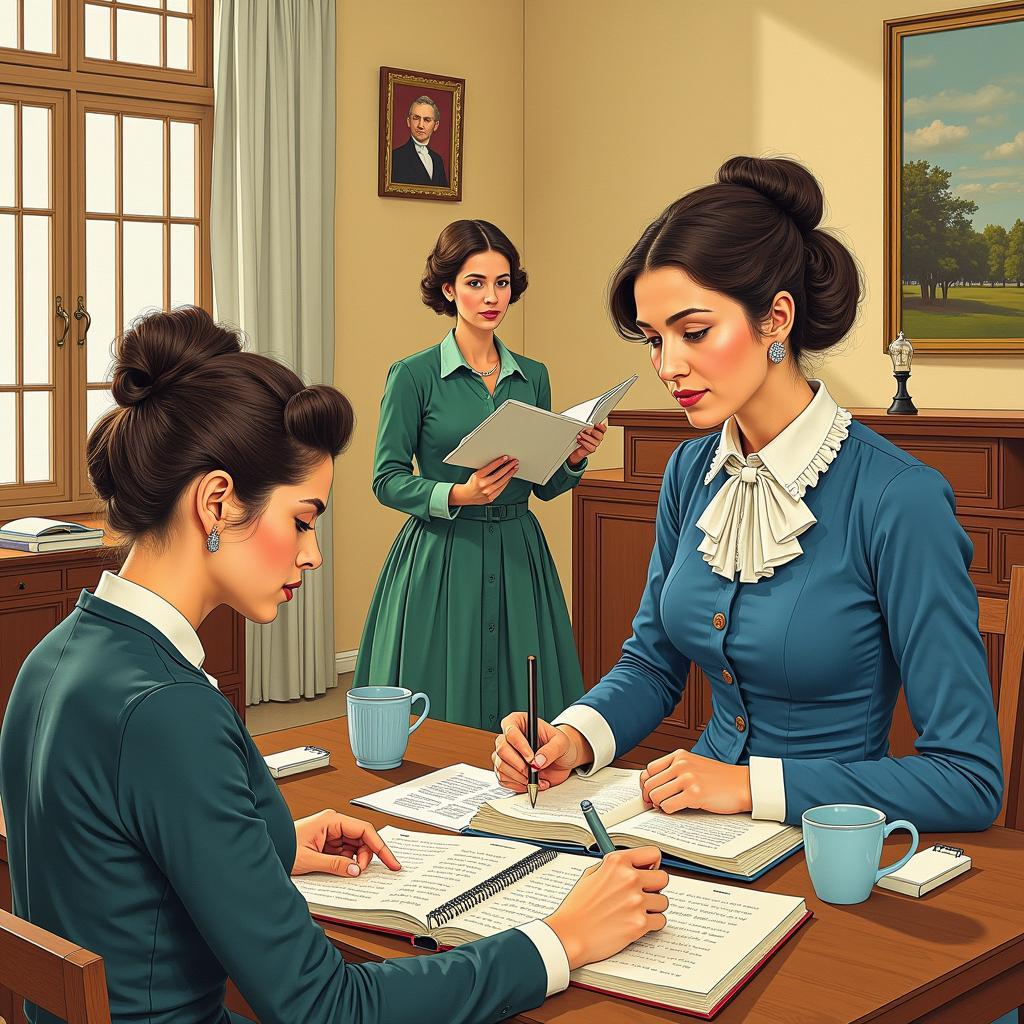The Bas Bleu Society, a term echoing through the halls of history, conjures images of intellectual women gathered in vibrant discussion. This article delves into the fascinating history and enduring legacy of these literary salons and their impact on female empowerment.
Unraveling the History of the Bas Bleu Society
The late 18th and early 19th centuries witnessed a surge in literary societies, and among them, the Bas Bleu Society carved a unique niche. Originating in England, these gatherings provided women with a platform to engage in intellectual discourse, share their creative works, and challenge societal norms.
The Pioneers of Intellectual Exchange
Key figures like Elizabeth Montagu, a prominent hostess and literary critic, played a pivotal role in shaping the Bas Bleu Society. These salons became havens for intellectual women, offering an alternative to the social constraints of the time. They fostered a spirit of camaraderie and mutual support, empowering women to pursue their intellectual passions.
The Significance of the Bas Bleu Movement
The Bas Bleu Society was more than just a social gathering; it was a powerful symbol of female empowerment. By creating spaces where women could freely express their thoughts and ideas, these societies challenged the prevailing notion of women’s intellectual inferiority.  The impact of the Bas Bleu Society on female intellectual development.
The impact of the Bas Bleu Society on female intellectual development.
A Catalyst for Social Change
The Bas Bleu Society contributed significantly to the advancement of women’s education and literacy. By providing access to knowledge and fostering a culture of intellectual curiosity, these gatherings helped pave the way for future generations of female scholars and writers. What were the long-term effects of the Bas Bleu Society on women’s rights? The impact can be seen in the subsequent waves of feminism and the continued fight for gender equality.
The Bas Bleu Society in Literature and Popular Culture
The legacy of the Bas Bleu Society extends beyond historical accounts. Its influence can be traced in literature, art, and popular culture. How is the Bas Bleu Society portrayed in modern interpretations? Often, these depictions emphasize the spirit of intellectual curiosity and the importance of female camaraderie.
A Timeless Inspiration
The Bas Bleu Society continues to inspire contemporary discussions about female empowerment and intellectual freedom. The values it championed resonate with modern audiences, reminding us of the importance of creating spaces where women’s voices can be heard and celebrated.
Hannah More, a renowned poet and playwright, once said: “The Bas Bleu Society is a testament to the power of female intellect and the enduring spirit of collaboration.”
Judith Sargent Murray, an early American advocate for women’s rights, added: “These gatherings provided a vital platform for women to challenge societal norms and shape the course of intellectual history.”
Mary Wollstonecraft, a pioneering feminist writer, observed: “The Bas Bleu Society demonstrates the profound impact women can have when they unite in the pursuit of knowledge and equality.”
In conclusion, the Bas Bleu Society remains a powerful symbol of female intellectual empowerment. Its legacy continues to inspire and inform our understanding of women’s contributions to literature, culture, and social change.
FAQ
- What was the primary purpose of the Bas Bleu Society?
- Who were some of the key figures associated with the Bas Bleu Society?
- How did the Bas Bleu Society contribute to female empowerment?
- What is the lasting legacy of the Bas Bleu Society?
- Where can I find more information about the Bas Bleu Society?
- How did the Bas Bleu Society influence literature and art?
- What are some modern-day equivalents of the Bas Bleu Society?
Related Articles
- The Rise of Women’s Literary Societies
- The Impact of Salons on Intellectual Discourse
- Female Pioneers in Literature and the Arts
Need assistance? Contact us 24/7: Phone: 02043854663, Email: [email protected] or visit us at: Khu 34, Bac Giang, 260000, Vietnam.